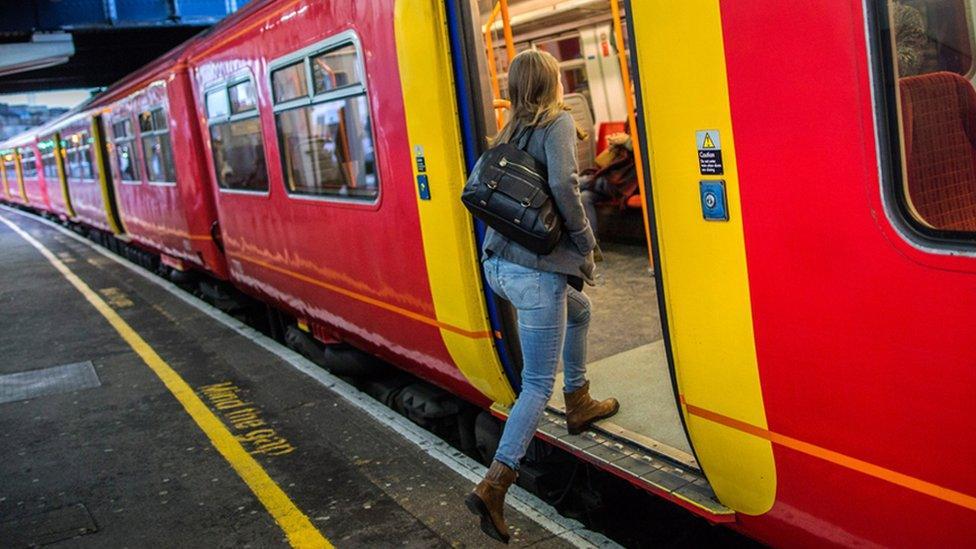How to save money on train fares
- Published
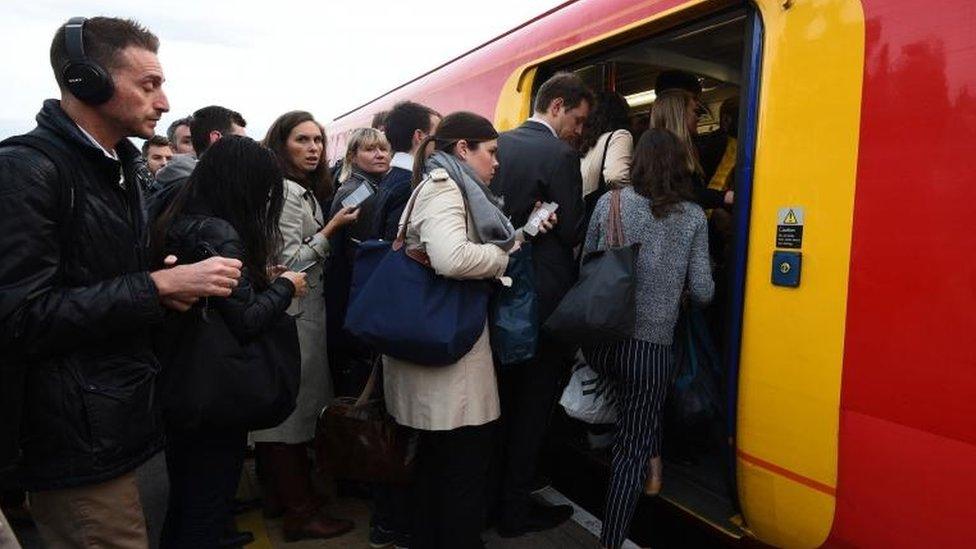
No one likes spending their hard-earned money on rail fares, which are set to increase by an average of 3.1% in 2019.
But like death and taxes, if you have to take the train to work, buying a ticket is somewhat unavoidable.
However, there are some tricks to help keep the cost to a bare minimum.
1. Season tickets
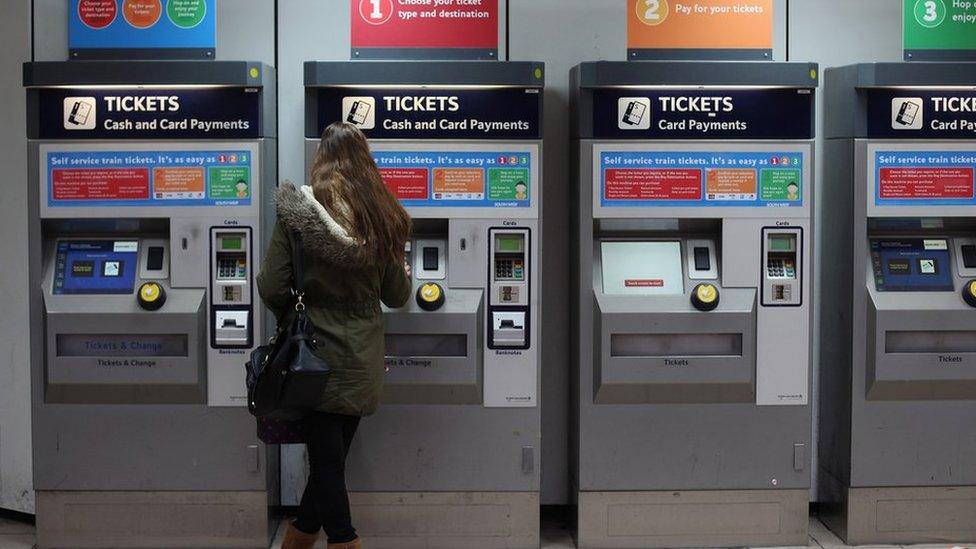
If you are travelling every day of the week, you ought to consider investing in an annual season ticket because it can save you serious amounts of money over the course of 12 months.
An annual pass costs roughly the same as 10 monthly tickets - meaning you effectively get two months for free.
If possible, buy your season ticket before 2 January as the existing 2018 prices still apply.
It's worth checking to see if your employer offers interest-free season ticket loans. You could also pay for it with a credit card if you're lucky enough to have a 0% offer.
2. Railcards
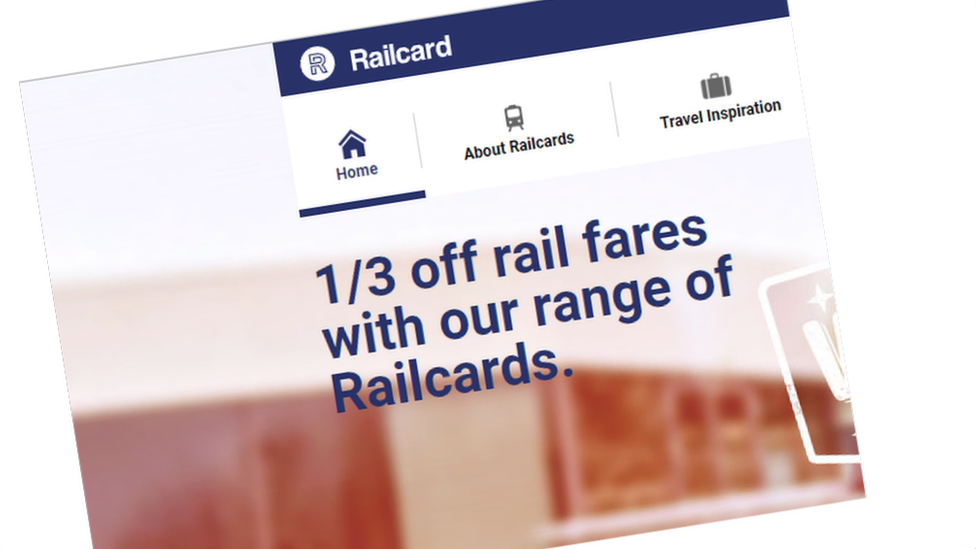
Those aged between 16 and 25 - as well as full-time students of any age - have long been eligible for a railcard, which costs £30 a year and offers a third off tickets for most journeys.
From 2 January anyone aged 26 to 30 will also be able to enjoy the same benefits with the new "millennial" railcard, external.
Buying an annual London Travelcard (known as a "gold card") offers the same savings on train journeys across the UK.
The Family & Friends railcard, external also costs £30 and cuts standard anytime, off-peak and advance adult fares by a third, and reduces kids' fares by 60%.
3. Book early
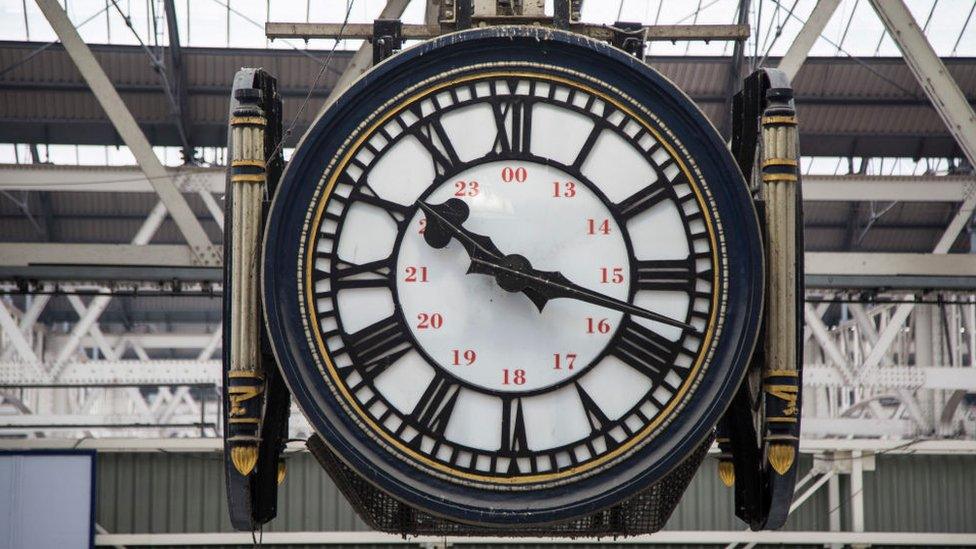
It sounds simple, but just as with air fares, the closer to your journey time the more expensive train tickets tend to be.
If you know you'll be travelling on a specific date, you can book up to three months in advance for most routes - and even further out on some. There's more detail about advance tickets here., external
Also, buying tickets directly from a rail operator's website, rather than a third party, can save you a booking fee.
4. Complain
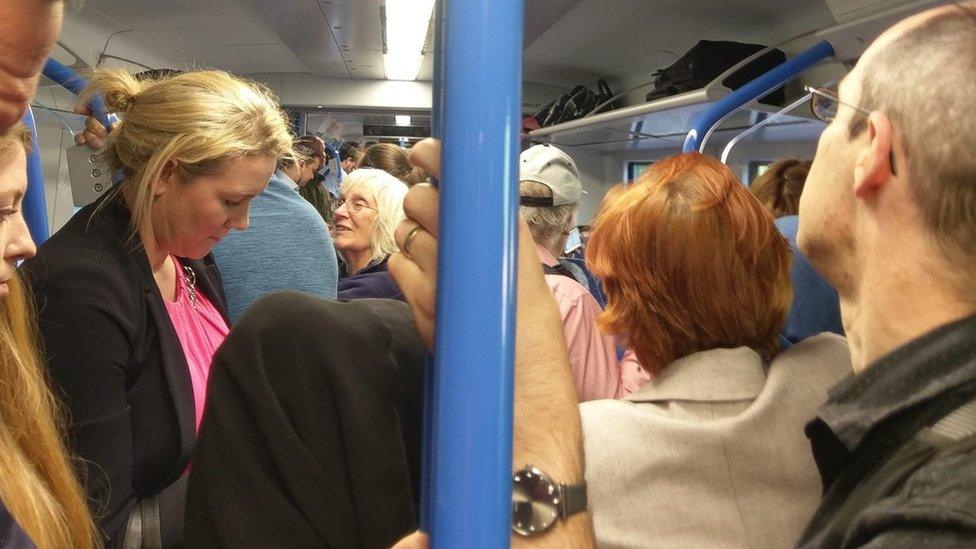
Transport Focus, the independent watchdog, advises passengers to complain if their service is disrupted.
If you are delayed you may be entitled to claim compensation. Conditions vary between train operators about the length of delay before they will hand over their cash and some will only pay if the delay was the fault of the rail industry rather than strike action, for example.
The percentage of the fare refunded also varies between operators.
Passengers are advised to contact the train operator via email or phone depending on the company's complaints handling procedures.
Include the date, time and route of your train and the full details of your complaint. Keep a copy of your complaint and of any tickets you send.
5. Do the splits

Not the easiest of options, but if you have the time and patience then splitting your journey into multiple tickets can lower the overall cost.
Your tickets must cover the whole journey and your train has to actually stop at that station.
Mark Smith, who is behind the train blog Seat61, says the technique works best on "obscure cross-country journeys" rather than trains in and out of big cities.
You can do it yourself on National Rail, or search for "split ticketing" online.
6. Take the bus
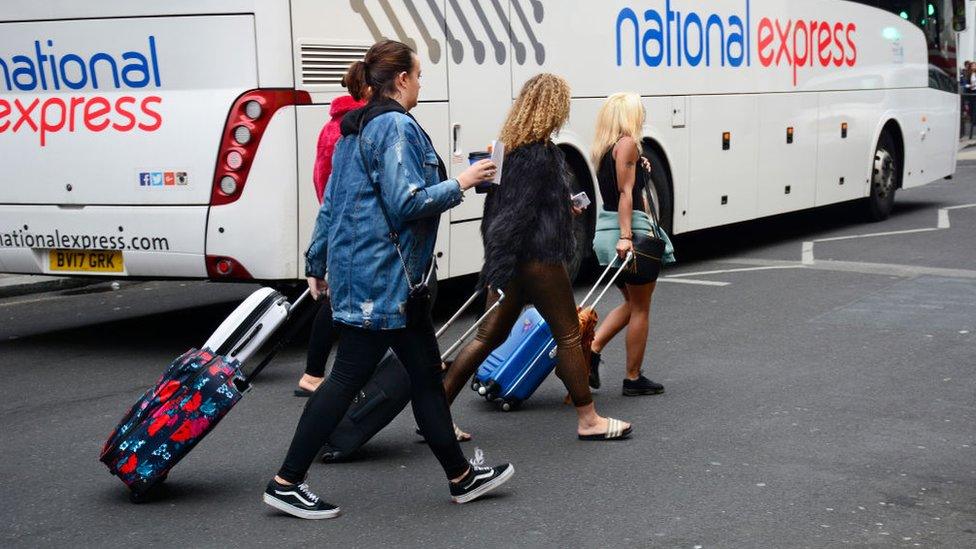
If you're making a leisure journey and have the luxury of time, consider taking a coach instead. They can often be vastly cheaper than trains - particularly at peak times.
Going from London to Manchester on Friday 14 December at 5pm and returning two days later will cost £83 on Virgin Trains, while a National Express coach would be less than £30.
7. Change your working hours
Chris Miller currently travels from Cambridge to London daily and pays just under £5,000 for an annual season ticket. But from February, when his season ticket runs out, he plans to switch to working from home twice a week to reduce travel costs.
However, he admits: "I am one of the lucky ones, I have an understanding manager and flexible working."
- Published30 November 2018
